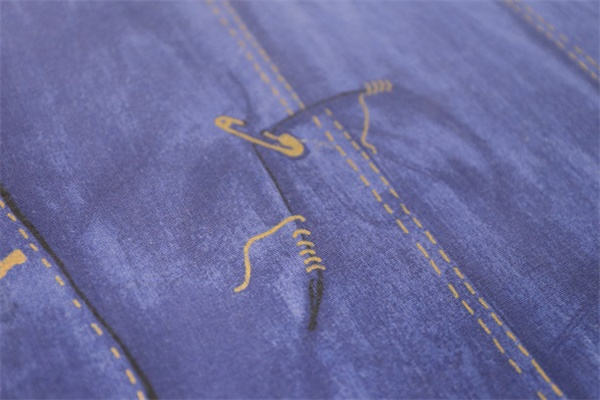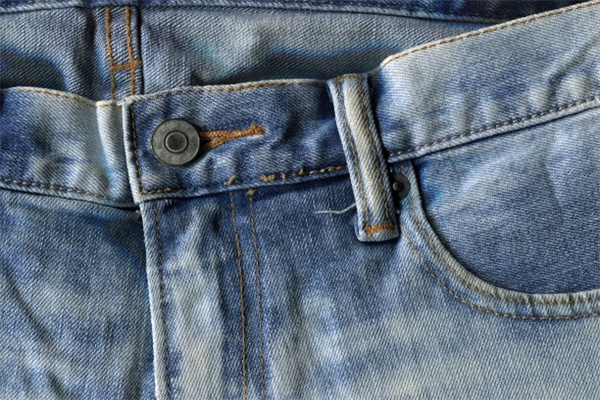Zero-Waste Custom Jeans:Made from Recycled Fabric with Your Fit
Introduction
In an era where sustainability and personalization are at the forefront of consumer demand, the fashion industry is undergoing a revolutionary transformation. Among the most exciting innovations is the concept of zerowaste custom jeans—garments crafted from recycled fabric and tailored to fit each individual perfectly. This approach not only reduces environmental impact but also delivers a superior product that aligns with modern values of conscious consumption.
Traditional denim production is notorious for its heavy water usage, chemical pollution, and textile waste. However, by embracing recycled materials and madetoorder manufacturing, brands can drastically cut down on waste while offering customers a unique, wellfitting pair of jeans. This article explores the benefits of zerowaste custom jeans, the process behind their creation, and why they represent the future of sustainable fashion.

The Environmental Impact of Conventional Denim Production
Before delving into the advantages of zerowaste custom jeans, it is essential to understand the environmental toll of conventional denim manufacturing. The production of a single pair of jeans requires approximately 2,000 gallons of water, from cotton cultivation to dyeing and finishing. Additionally, harmful chemicals like synthetic indigo dyes and bleaching agents often contaminate water sources, affecting ecosystems and communities near production facilities.

Beyond water consumption, the fashion industry generates 92 million tons of textile waste annually, with illfitting or lowquality garments contributing significantly to landfill accumulation. Fast fashion exacerbates this issue by encouraging disposable clothing, where jeans are worn briefly before being discarded.
How ZeroWaste Custom Jeans Make a Difference
Zerowaste custom jeans address these environmental concerns through two key strategies:
1. Using Recycled Fabric
Instead of relying on virgin cotton, sustainable brands source postconsumer denim or recycled cotton fibers to create new fabric.
This reduces the need for additional water, pesticides, and energy, lowering the carbon footprint of each pair.
Some manufacturers even incorporate ocean plastic or industrial textile scraps into their denim blends, further diverting waste from landfills.
2. MadetoOrder Manufacturing
Unlike massproduced jeans, which often lead to overstock and unsold inventory, customfit jeans are only made when ordered.
This eliminates excess production, reducing fabric waste and unsold garments that would otherwise be incinerated or discarded.
Customers provide their exact measurements, ensuring a perfect fit and minimizing returns—another major source of waste in ecommerce.
The Process of Creating ZeroWaste Custom Jeans
Creating a pair of zerowaste custom jeans involves several sustainable and innovative steps:
1. Sourcing Recycled Materials
Brands collect discarded denim from thrift stores, recycling programs, or textile waste streams.
The fabric is broken down, sanitized, and respun into new yarn, ready for weaving.
2. Digital Design and Pattern Optimization
Advanced software helps designers create patterns that maximize fabric usage, leaving minimal scraps.
Any leftover material is repurposed into patches, accessories, or stuffing for insulation.
3. Custom Tailoring Based on Customer Measurements
Buyers input their exact measurements via an online platform or 3D body scan.
The jeans are then cut and sewn to match these specifications, ensuring a flawless fit.
4. EcoFriendly Dyeing and Finishing
Instead of toxic dyes, sustainable brands use natural indigo, plantbased pigments, or waterless dyeing techniques.
Laser technology replaces traditional sandblasting for distressed effects, reducing chemical exposure for workers.
5. Ethical Production and Shipping
Factories prioritize fair wages, safe working conditions, and renewable energy.
Packaging is plasticfree, using recycled cardboard or compostable materials.
Why Custom Fit Matters in Sustainable Fashion
One of the biggest reasons clothing ends up in landfills is poor fit. Illfitting jeans are frequently returned or discarded after minimal use, contributing to waste. By offering customfit jeans, brands ensure:
Higher Customer Satisfaction – When jeans fit perfectly, buyers are more likely to keep and wear them for years.
Reduced Returns – Fewer returns mean lower carbon emissions from reverse logistics.
Longer Garment Lifespan – Wellmade, tailored jeans resist wear and tear better than massproduced alternatives.
The Future of ZeroWaste Denim
As consumers become more environmentally conscious, the demand for sustainable, customfit jeans will continue to rise. Innovations such as 3D knitting, biodegradable denim, and blockchain traceability will further enhance transparency and efficiency in production.
Brands that adopt zerowaste practices today will lead the market tomorrow, proving that fashion can be both ecofriendly and luxurious. By choosing recycled fabric custom jeans, consumers play an active role in reducing waste and promoting ethical fashion.
Conclusion
Zerowaste custom jeans represent a powerful shift in the fashion industry—one that prioritizes sustainability, personalization, and quality. By utilizing recycled materials and madetoorder manufacturing, these jeans minimize environmental harm while delivering superior comfort and style.
For those seeking a wardrobe that aligns with their values, investing in zerowaste custom jeans is a step toward a more sustainable future. Every pair purchased is a statement against fast fashion and a commitment to preserving our planet—one perfectly fitted pair at a time.
Global logistics
It can be shipped worldwide
About the MOQ
Minimum order quantity of 200 pieces
Support 24/7
Call us:(+86)138 0277 1794
Free sample
200 pieces MOQ Free sample

Customized product message